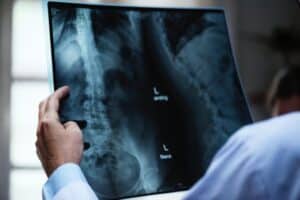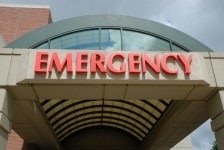Should I Go To Therapy After A Car Accident?
The answer to the question posed in the title is a simple one. A person injured in an automobile accident should do whatever the doctor that evaluates them tells them to do.

If that advice includes surgery, then the individual should have surgery. If that advice includes medications and rest, then the individual should pursue that course. If the examining doctor feels the injures sustained prevent the person from working or working only within restricted duties, then they should follow that advice. If a doctor feels that a consultation with a specialist, or a diagnostic test is appropriate, then the patient should follow that course. The answer is exactly the same when it comes to physical therapy.
If a doctor feels that physical therapy is appropriate, then the individual should get therapy.
A question that I see frequently in the aftermath of a car accident involving personal injury is whether or not the injured person’s lawyer will arrange medical care for them. There appears to be a common perception that the lawyer arranges for a client’s medical care for injuries sustained as the result of an accident. Now, as a personal injury attorney in Maryland handling injury and car accident cases for more than 25 years I have become familiar with many fine doctors and medical practices throughout Maryland. If a client of mine asks for opinion on the reputation or ability of a doctor, and I Attorney Eric T. Kirk have experience with that doctor or medical practice, I would be happy to offer it. Similarly if a client who perhaps does not have a primary care doctor to be seen for an evaluation for their injuries, asks for a recommendation regarding a place a medical facility to which to go, I happily offer suggestions based on input from former clients who have treated at a given facility or medical practice. If a client simply does not know where to go, or how to go about obtaining needed medical care, I will make a referral for them.
The essential goal remains, however, by whatever mechanism, if you have sustained a personal injury as a result of a car accident, you should promptly get medical care and attendance and heed the advice of the examining physician in each of its particulars.
In the aftermath of the typical car accident I find that generally one of two scenarios plays out. In the first post car accident scenario, it is immediately clear to the participants did they have sustained a significant personal injury. These would include things like broken bones, significant lacerations and the like. These types of grievous injuries obviously require immediate medical care and attention, usually provided at the emergency room of a local hospital.

The second scenario that we see frequently in the wake of an automobile accident is one in which an individual involved has sustained injuries to the musculature, tendons and ligaments in the neck and the back. For lack of a better word, many people refer to this as whiplash. The correct medical terminology would be a lumbar or cervical strain, or both. These types of injuries involve the tearing and fraying of the connective tissue around and associated with the human spine. What we found over the years is that often times the pain, swelling, inflammation and stiffness types of injuries don’t manifest until 24 to 48 hours after the impact. Indeed, I’ve represented numerous people over the years who, immediately after an accident, although they felt shocked or stunned, declined medical care believing they were going to be “o.k.”, only to find out that the next morning they had extraordinary pain and stiffness in their neck or back. Obviously they were not fine, but it took a few hours for the true extent of the injury to become apparent.
Whatever the course of treatment that a doctor may ultimately recommend an injured individual should seek a medical opinion, and heed the medical advice. There are many fine emergency room facilities at local hospitals.
http://www.umm.edu\
https://www.jhu.edu/search/?c=gsa&q=hospital.
The role of an emergency room physician has been be described as somewhat focused on particular goals. An emergency room staff will provide life-saving treatment when called for to stabilize a patient’s condition and to rule out significant or lasting injury.

Once those goals have been completed, typically that patient is going to be discharged. Sometimes an emergency room staff physician may make a recommendation for additional medical care down the line. What we see most often, however, is that the emergency room physician stabilizes the individual, does whatever testing or examination is necessary to ensure that there are not significant, disabling injuries and discharges the person. What we’ve seen frequently is that the individual that has sustained a significant cervical or lumbar strain, very common injuries resulting from a motor vehicle accident, would likely be discharged under this scenario, often without recommendations for future care. I’ve been told that a strain or sprain is not going to appear on most diagnostic studies.
We’ve also been advised by numerous clients over the years that it is precisely the individual who sustains a cervical or lumbar strain that perhaps benefits the most from immediate physical therapy, serving to increase or sustaining range of motion, reducing swelling and stiffness, and ultimately alleviating pain.
The American Physical Therapy Association tells us that therapists “(PTs) are highly-educated, licensed health care professionals who can help patients reduce pain and improve or restore mobility – in many cases without expensive surgery and often reducing the need for long-term use of prescription medications and their side effects.”1 I’ve represented countless individuals over the years who have successfully recovered from neck and back injuries with the help of dedicated and skilled physical therapists.
I have handled and evaluated thousands of injury and accident cases over the years. I extend a complimentary strategy conference, evaluation and analysis process that I employ in every personal injury case brought to us. Contact me today to begin this process. 410 591 2835.
1 http://www.apta.org/AboutPTs/



